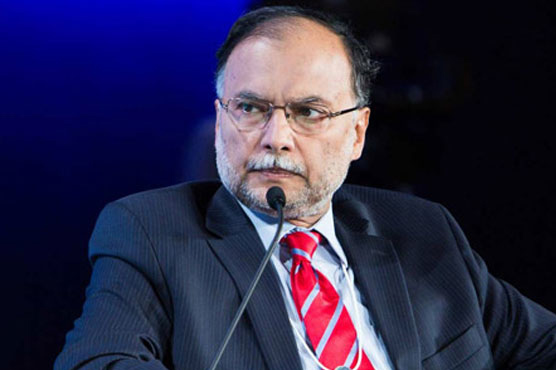Islamabad :
Federal Minister for Planning Ahsan Iqbal has said that the serious challenges facing Pakistan are worse than the economic sanctions imposed during the fall of Dhaka in 1971 or after the 1998 nuclear tests.
According to media reports, addressing a conference organized by Pakistan Institute of Development Economics (PIDE), the Planning Minister said that due to dishonest policies of the previous government, the development budget for 2017 should be less than one trillion rupees. Taxes have dropped to less than Rs 500 billion this year.
He emphasized that the real problem in Pakistan was not the political system but the non-observance of the sanctity of the constitution.
His statement came just two days before the annual meeting of the Annual Plan Coordination Committee (APCC) scheduled for June 4 to finalize the annual development plan (ADP) of about Rs 800 billion for the next financial year. Has come to the fore.
According to the final review of development programs for the last two days, this year’s Federal Public Sector Development Program is limited to Rs. 480 billion due to huge fiscal deficit.
A meeting of the National Economic Council (NEC) is tentatively scheduled for June 7 to approve next year’s development program.
The NEC, headed by the Prime Minister, comprises of four provincial chief ministers and as many federal ministers, while the prime minister of Azad Jammu and Kashmir and the chief minister of Gilgit-Baltistan are present at the meeting as special observers. I will be presented.
Ahsan Iqbal said that we are facing serious challenges that we have never faced before, not even during the fall of Dhaka or when we imposed economic sanctions on Pakistan after conducting nuclear tests.
He added that it had never happened in the last 75 years that there were no funds for development in the fourth quarter and the government coffers were empty.
The Federal Minister said that economic growth depends on political stability and continuity of government policies, there is an urgent need to consider why constitutional and democratic principles have been strengthened or weakened in Pakistan and why democratic and constitutional process is not moving forward. Increase
The Planning Minister said that other nations of South Asia and Africa have left Pakistan behind on economic and development fronts which should be a matter of deep concern to Pakistanis.
He said that Pakistan’s exports in the 1960s were about ً 200 million which increased to 25 25 billion while in the same period South Korea’s exports increased from 10 100 million to 70 770 billion.
Ahsan Iqbal said that in order to move the wheel of development in the country, we need to end political divisions and confrontations on an urgent basis.
Citing an example, he said that the successful countries have adopted a well-thought-out and well-thought-out strategy to transform their economies and development, and hoped that Pakistan too could overcome such challenges.
Talking about the importance of policy continuity for Pakistan’s political stability and economic development, he said that we should all think about why we have not been able to make progress since independence.
“It simply came to our notice then.
He further said that countries like China, India, Bangladesh and Malaysia were lagging behind Pakistan economically a few decades ago but now they are ahead of Pakistan.









